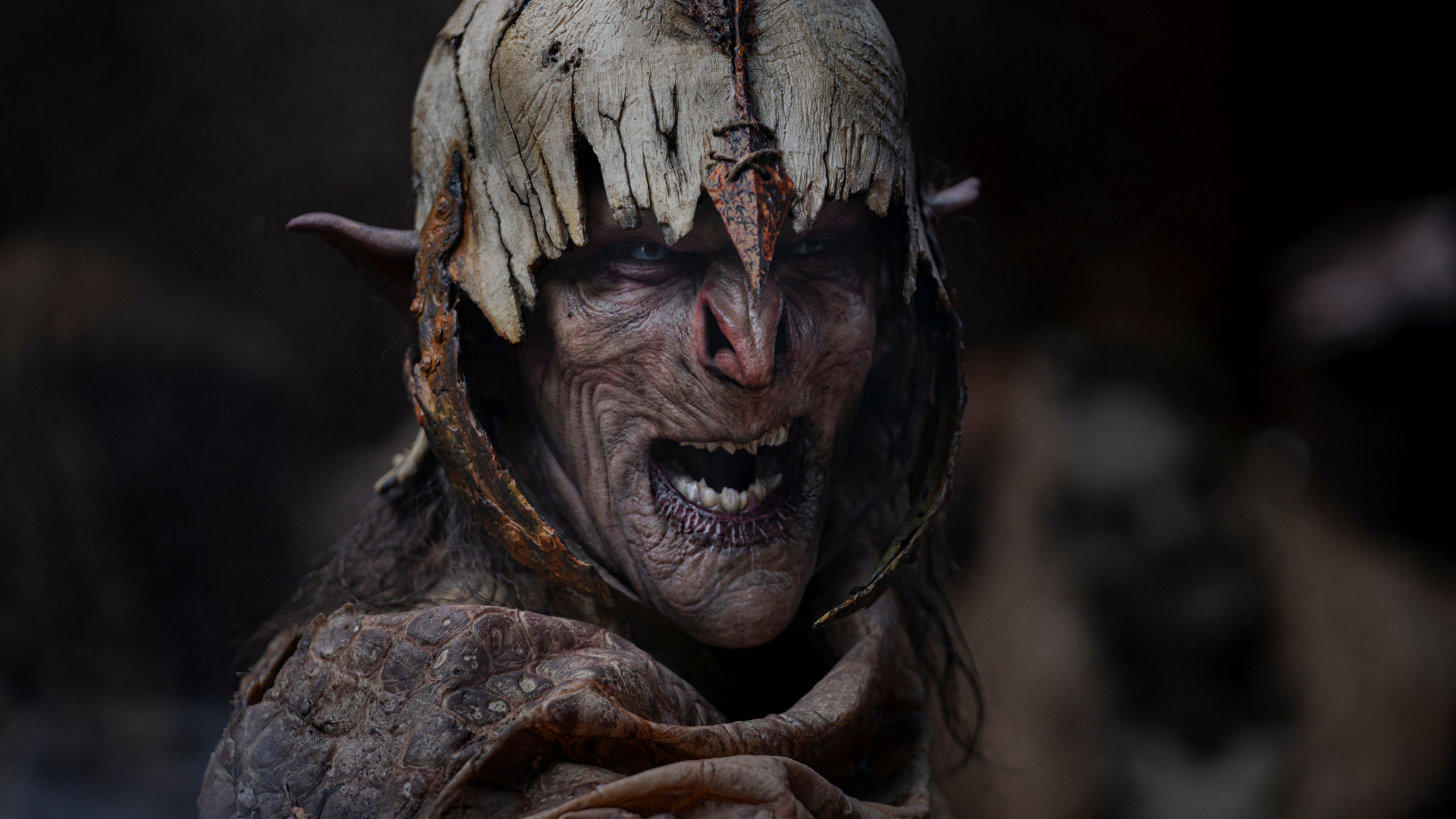The Rings of Power showrunners discuss, at length, that huge Sauron reveal
Warning! Spoilers for the Rings of Power season 1 finale ahead. Turn back now if you haven't seen episode 8

Warning: the following contains spoilers for The Lord of the Rings: The Rings of Power episode 8. Turn back if you haven't seen the new installment in Amazon's epic Tolkien adaptation.
The Rings of Power’s first season has come to a startling conclusion. Turns out, the theories were right: Halbrand is Sauron. Now, for many, the reveal will have come as a complete surprise, but for those who keenly analyzed Halbrand’s every word, the clues were there all along. "Appearances can be deceptive," he tells Galadriel as they float on the Sundering Seas in the show’s second episode.
The idea, the showrunners say, was not to pull the rug out from underneath viewers, but to lay the foundation for a reveal that rocks Middle-earth to the core. Total Film attended a Q&A with JD Payne and Patrick McKay in which they discussed the revelation and actor Charlie Vickers’ audition. Here’s the full transcription, edited for clarity, followed by some analysis of their words.
JD Payne: [Vickers] did eventually know. We kept it very close to the vest for a while. He read a monologue from Richard the Third. At certain points he suspected [Halbrand was Sauron], he was putting it all together like, ‘Okay, they're having me read deep English canon villains.’ We didn't tell him from moment one that this was what was happening. We let him discover it.
Patrick McKay: Charlie's amazing and enormously talented. And we were thrilled to get him. He actually read originally for Elrond. But this character was always Sauron. One of the initial sparks and ideas and, in our opinion, right or wrong, a reason to do the entire show, is that Galadriel talks about Sauron in the books in a way that indicates that she knew him really well.
JD Payne: [Quoting Galadriel in Fellowship of the Ring] ‘I perceive the Dark Lord and know his mind, or all of his mind that concerns the Elves, and he gropes ever to see me and my thoughts. But still, the door is shut.’ The idea of ‘still the door is shut’, that he's been reaching after her for a long time, and there's this sense of back and forth between them – we found that endlessly fascinating. And we said, ‘There's an entire history between them. He's not just some eye in the sky, who's looking at it from afar, there's a relationship. And so, how could you have a relationship between the Dark Lord and Galadriel, in a way that lets them get to an interesting place? If she knew it was him from the beginning, obviously she would reject him out of hand, because we know from the legendarium that he was responsible for her brother's death. We know that he has this desire to heal the world, and she has this heroic desire to fix the world. So if we could put them in parallel to each other without exactly knowing who he was, there was an opportunity there.
Patrick McKay: Two other things to add. There’s this whole idea from Tolkien's letters and other writings where he talks about how Sauron wasn't evil in the beginning. Elrond says in the book: ‘Nothing is evil the beginning, even Sauron was not so.’ Immediately, we're thinking about [the TV series] Breaking Bad. We're thinking about Tony Soprano [from The Sopranos], these characters who are these enormous, larger-than-life modern villains, but have this other side. You go back and forth: do I hate them? Do I love them? Are they seducing me? We thought that was really rich terrain. And then, Tolkien had this idea of chance meetings throughout his books – that chance meetings are preordained in Middle Earth. So, what if Sauron is in a place where he's repentant and lost? And Galadriel’s in a place where she's desperate and obsessed. What might happen if they meet? Maybe they'd be friends? Maybe they’d get along? The idea of a non-romantic, cosmic connection seemed so pregnant with possibilities. That was by far the hardest thing that we worked on. We have this idea that, if you watch it again, every single thing he says is not a lie. This isn't like a rug poll. We're not trying to shock people. We want to hopefully reward close viewing if you’re suspicious of him early. That's a whole valid version of the show, we felt.
Sign up for the Total Film Newsletter
Bringing all the latest movie news, features, and reviews to your inbox
JD Payne: There’s something in him that is sort of vaguely reminiscent of Gollum, when you watch it again, where you see these two forces driving within him. In some ways, Gollum is to Sauron as Sauron is to Morgoth, a little bit. The One Ring is operative on his consciousness at all times. And even maybe if he tried to turn away from it and be Mairon, the Maier, who, in the beginning, was good, there's this shadow that has operated upon his soul that he is enslaved to, that you always see, every decision he makes, takes him, in one way, towards the good, but it also takes him towards power. And power is his addiction. Watching back, with that in mind, it's fun to pick apart everything he says, or if he does retreat from the decision he makes.
So, Payne and McKay have established that Sauron’s eventual identity reveal was one of the central driving forces behind the series, and the overall result is spectacular – the finale is a riveting hour of television. Now, let’s dig a little deeper into something Payne says: that Sauron, once called Mairon, a Maier, was good.
The Maier were spirits, created to help the God-like Valar shape the world. Mairon was one of the most powerful of the Maier and had a love of order. However, he was soon corrupted by Melkor – the original name of Morgoth – who twisted Mairon’s desires and turned him evil. After Morgoth’s defeat, Sauron actually repented and transitioned into his fairer form. However, once he was ordered to head back to Valinor for judgment, Sauron went off-piste again.
Considering we meet Galadriel on the Sundering Seas after jumping from a ship heading to Valinor, it certainly makes sense that Sauron, now Halbrand, would be in the same position, having potentially abandoned his own unwanted trip to Valinor. It’s a chance meeting that works within Tolkien’s lore and follows the author’s ethos.
Also interesting is the comparison to Gollum, the creature corrupted by the One Ring. Gollom, neé Smeagol, becomes obsessed with the object – he wants it, he needs it. That Sauron wants and needs the One Ring before it’s even forged, that it’s an "operative on his consciousness", speaks to the great, unstoppable evil in Middle-earth. Although Morgoth has long been defeated, his manipulating ways over Sauron are still felt.
For more on The Lord of the Rings: The Rings of Power, check out our pieces on The Stranger and Celeborn, two characters who remain mysterious – and will stay that way until season 2 finally arrives. This wait is going to be unbearable, isn’t it?

Jack Shepherd is the former Senior Entertainment Editor of GamesRadar. Jack used to work at The Independent as a general culture writer before specializing in TV and film for the likes of GR+, Total Film, SFX, and others. You can now find Jack working as a freelance journalist and editor.


